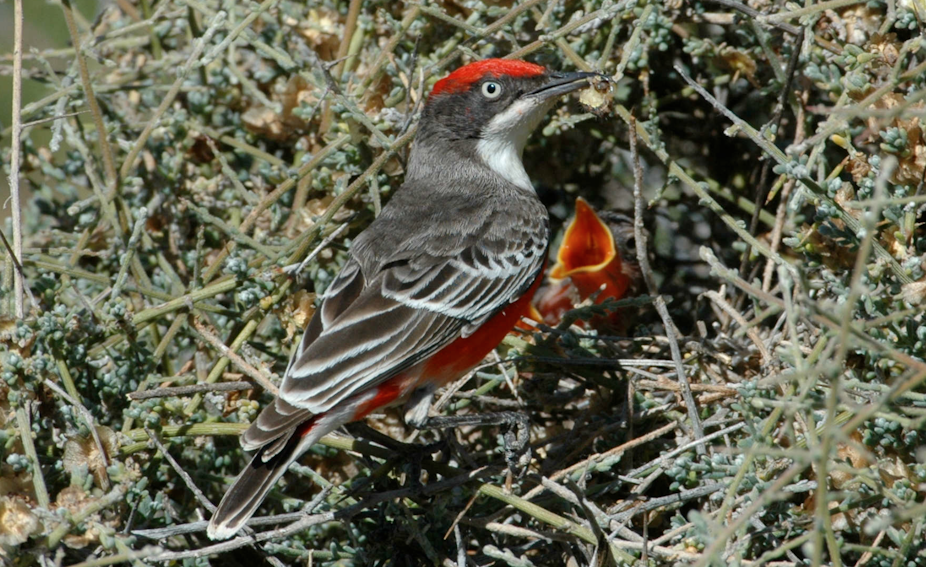Why do females cheat on their partners? A new study of songbirds in the US – published today – suggests cheating females are more successful in the long-run and get more grandchildren.
Why? Because the offspring sired as a result of promiscuous matings are more successful at reproducing than those sired by her long-term partner.
These intriguing results help us understand the evolutionary dynamics underlying social monogamous pairbonds – something that has control of our own hearts.
In socially-monogamous animals, females form partnerships with males to get access to male-held resources, such as territories, or direct help in raising offspring.
Despite the benefits females appear to get from forming these social bonds, some females are sexually unfaithful.
This is as risky a strategy for a bird as it would be in human relationships. Promiscuous females risk being deserted by their partner, or at least suffering a reduction in the contribution he will make to the rearing of their offspring.
Natural selection has made males very sensitive to the risk of cuckoldry and the expense of raising someone else’s offspring.
High infidelity
Given the potential cost of infidelity to females, there has been much research in evolutionary biology over the past three decades into the motivations behind extrapair copulations by females.
The advent of DNA profiling in the late 1980s provided new impetus to this field as wildlife biologists could use blood samples collected from families of birds to identify offspring that resulted from a cuckolding male.
In the best studies, researchers were even able to sample all of the males in a population and identify the extrapair male as well.
More than 200 species of bird around the world have been investigated in this way, and on average about 15% of all offspring are the result of female infidelity.
(It may be of interest that one of the highest levels of infidelity recorded is in a population of fairy wrens in the Botanic Gardens in Canberra, in which over three quarters of all offspring are sired by extrapair males).

Usually in birds, the copulations that lead to this extrapair paternity are very brief and cryptic – females don’t appear to gain much from the cuckolding male other than sperm.
Many studies have therefore looked for potential genetic benefits in the resulting offspring, comparing offspring that have been sired by extrapair males with those sired by social partners.
To date, most studies have had to tackle the question during the short time-frame of a typical research grant, which means they have only looked for differences in the short-term.
Many have searched, to no avail, for differences between offspring at early stages of development while the offspring are still in the nest.
Charting a new flightpath
In their PRSB study of the dark-eyed junco (an American sparrow), conducted over 18 years, Nicole Gerlach and her co-authors genotyped more than 2,000 offspring and tracked those that returned to the study site, each year measuring how many offspring they produced.
Sons and daughters sired by extrapair males produced almost twice as many offspring in their lifetimes as those individuals fathered by the social male at a nest.
Sons produced by extrapair males were more likely to themselves father additional offspring themselves through promiscuous matings.
Daughters produced by unfaithful mothers were themselves better at producing fit and healthy offspring.
So, in this species of bird, infidelity does pay – even though the benefits are only seen many years later.
The study illustrates very nicely how behaviour can be shaped by selection acting in quite subtle ways and over long periods of time.
All of which may be worth getting in a flap about.

